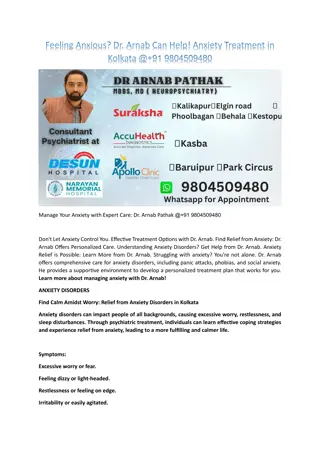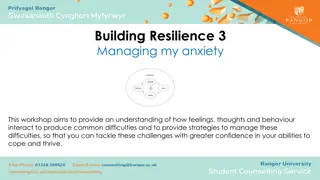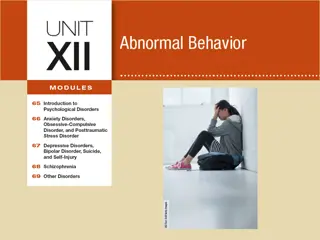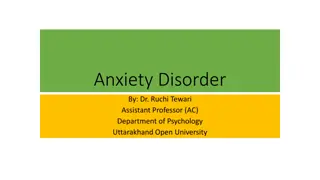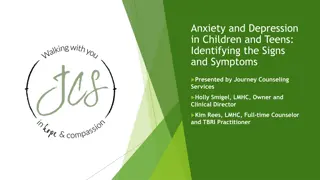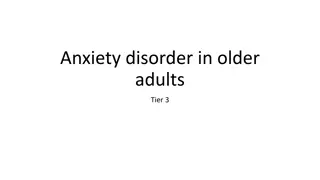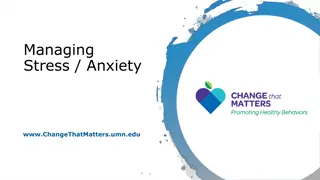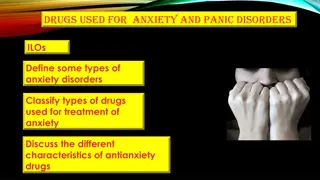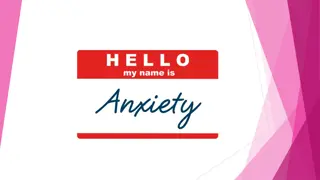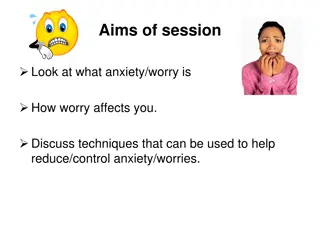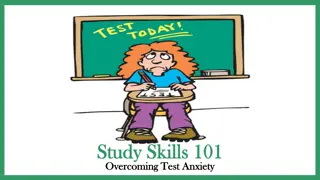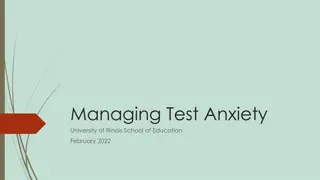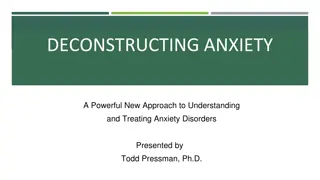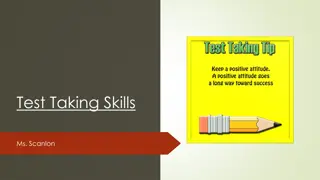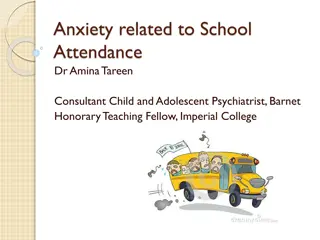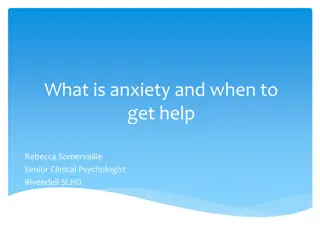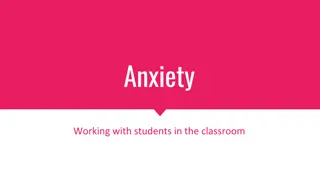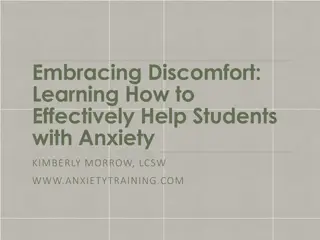Strategies for Managing Test Anxiety
Learn how to identify, cope with, and overcome test anxiety with practical tips for before, during, and after exams. Discover ways to alter your actions, change your thoughts, and prepare effectively to conquer test-related stress. Take charge of your anxiety and perform better in test situations.
Download Presentation

Please find below an Image/Link to download the presentation.
The content on the website is provided AS IS for your information and personal use only. It may not be sold, licensed, or shared on other websites without obtaining consent from the author.If you encounter any issues during the download, it is possible that the publisher has removed the file from their server.
You are allowed to download the files provided on this website for personal or commercial use, subject to the condition that they are used lawfully. All files are the property of their respective owners.
The content on the website is provided AS IS for your information and personal use only. It may not be sold, licensed, or shared on other websites without obtaining consent from the author.
E N D
Presentation Transcript
Melissa McMullin, Psy.D. MCAPS Workshop (909)621-8202 Melissa_McMullin@cuc.claremont.edu MANAGING TEST ANXIETY MANAGING TEST ANXIETY
What is test anxiety? Physical symptoms Feelings Thoughts Behaviors
Do you have test anxiety? 1. Can you recall the information you forget when you leave the exam? 2. Are you stressed or anxious during the test?
Alter your actions Do something else during the exam. Practice guided imagery. Engage in progressive relaxation. Breathe. Change how you take the exam. Change where you take the exam.
Before the Exam Create a study plan. Rehearse taking the test (practice exams and imaginary exams). Study in the exam space. Plan out what you need for the test. Plan time for yourself away from studying. DON T study at least 1 hour prior to the exam.
During the exam Write down any information you are apt to forget when you first get the exam. Preview the exam. Read all of the instructions. Plan a timed strategy for the exam. Prioritize high point items. Answer what you know first. Then answer what you half know. Then answer the tough questions. Don t forget to use every tool available to you (e.g. calculator, periodic table, etc.).
If the anxiety starts to creep in Think about the exam as a conversation between you and your professor. Revisit your imaginary exam. Breathe. Sharpen your pencil. Move on to another question. Substitute simple language for complex terms.
Change your thoughts Identify your thoughts Evaluate your thoughts Are my thoughts accurate and or factual? Respond and challenge your thoughts Relax
Challenging your thoughts What is the evidence that the thought(s) is/are true? Not true? Is there an alternative explanation? What s the worst that could happen? Could I live through it? What s the best that can happen? What s the most realistic outcome? What are the consequences of adhering to the distorted thinking? What would happen if I changed my thinking? If (friend s name) were in this situation what would I tell him/her?
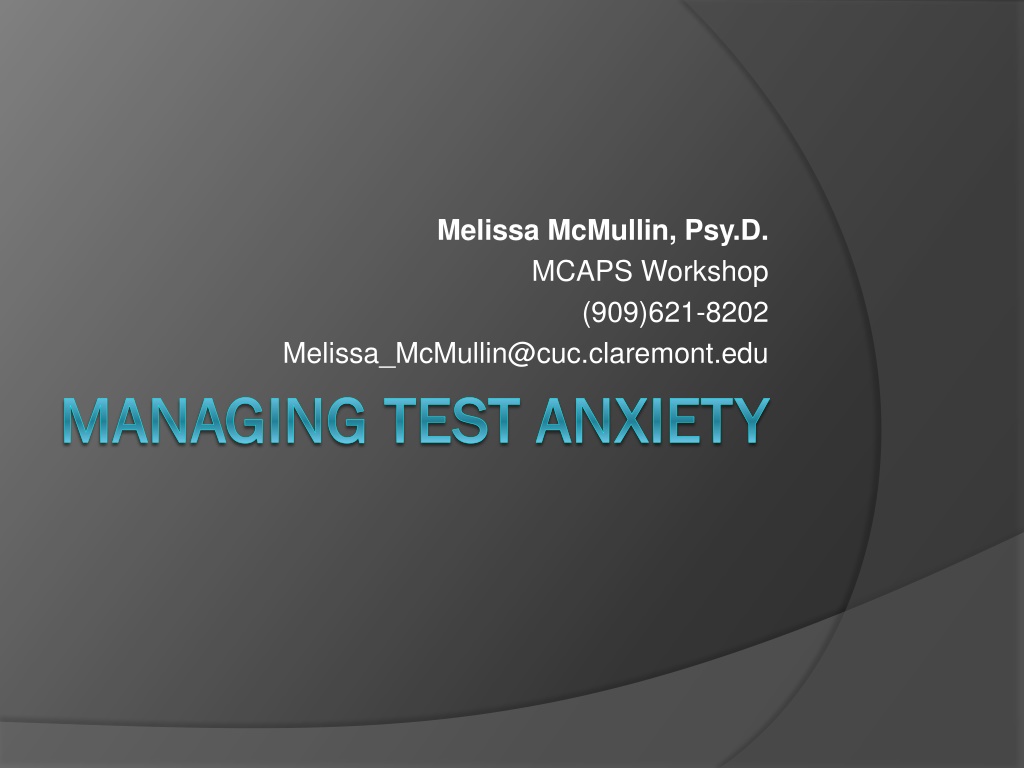
 undefined
undefined







